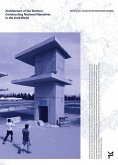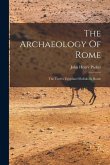"Why is the question of Israel/Palestine so intractable? Why, in this supposedly enlightened, secular age, does there seem to be no exit from a conflict that has focussed obsessively on the material features of this tiny country for millennia? How is it that the very stones, monuments, and landscape have become so invested with conflicting values that they seem to have 'lives of their own' that are not simply shaped by historical events, but themselves play the role of causal agents in those events? Daniel Monk's brilliant and profound meditation on these questions eschews all the easy alternatives: it avoids the temptation both of one-sided polemics (on the one hand) and Olympian neutrality (on the other); it refuses to pass over the fetishizing of monuments and places as a mere symptom that could be dispelled by critique; above all, it insists on looking steadily at the objects themselves in all their paradoxical, conflicted formulations, their positioning in events, memories of events, and fantasies of a final event to come. This is an essential book for anyone who wants to think about the Holy Land, or about the way objects make and are made by history."--W. J. T. Mitchell, University of Chicago, Editor, "Critical Inquiry"
Hinweis: Dieser Artikel kann nur an eine deutsche Lieferadresse ausgeliefert werden.
Hinweis: Dieser Artikel kann nur an eine deutsche Lieferadresse ausgeliefert werden.








